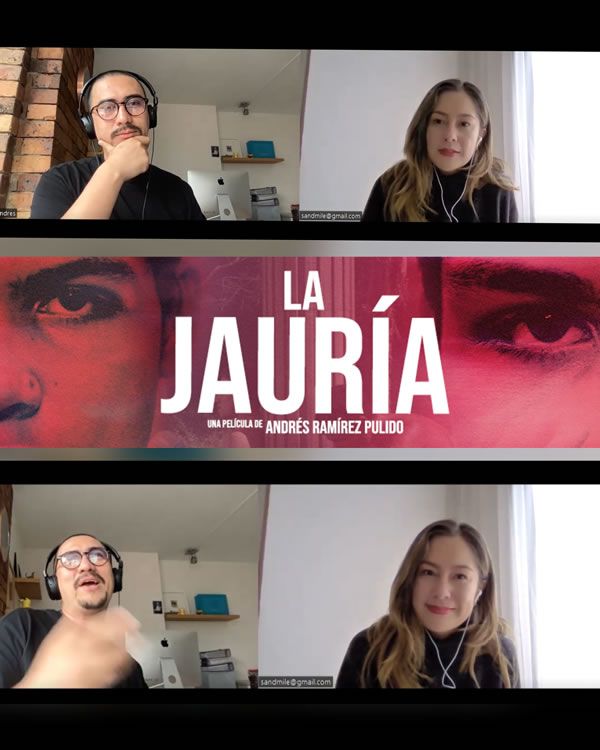Oct
twenty-one
2022
02:30
Being violent is something that sometimes exceeds the nature of the being that exercises it, because there are external factors that consciously or unconsciously influence it: the environment, the family and even destiny. With “The pack”, Andrés Ramírez Pulido explores violence from a universal, more personal, more internal approach, from the visceral and the instinctive in the management of emotions. And it also speaks of that constant search for conversion and forgiveness.
The film converges in a very powerful reflection on the divine and the human, on social decomposition and questions whether a human being can actually change his ways when he is completely unaware of basic concepts such as family.
Complex, dense, claustrophobic, mystical and disturbing, this is how this debut film is that managed to win the highest prize in the parallel section of the Cannes Film Festival, the critics week, this year. I talked to the director about this story.
- In “El edén” you talked about two teenagers who arrive at an abandoned place with an atmosphere that ends up unleashing violence. In “Damiana”, of a group of adolescent women under surveillance. Are these shorts the continuation of those stories in some way and is there a kind of relationship between them?
“The three works do dialogue, but I also see them as three independent works.”
- You shot this film in the same abandoned place as your first short, what attracts you so much to this space to repeat the location, even though you had difficulties with permissions?
“For me “La pack” is a fallen Eden, it is a fallen state.
- I feel like there are two different angles to the way you look at the violence in your film. One is from the person’s relationship with the environment and how it allows itself to permeate that space to the point of changing it. Is that how you conceive it?
“Since I made “El edén” I have thought of violence as an entity that takes shape and is embodied in them”.
- The other angle is of violence from the atmospheric, the unobvious, the unspoken. How do you think it is possible to show what is not explicit in the film?
“Art is a bridge between what we see and what we do not see, a bridge between what is concrete and what we cannot see visibly.”
- In the media function you said that there is a component of personal experiences in the film. Which are?
“The pack has a lot of personal questions of mine about violence, parenting, change… spirituality.”
- Curiously, “La jauría” with that reminded me of “Dioses y hombres”, which although it has a very different nature, shares that marked vision of faith in complex situations and in that metaphor between the divinity, represented here in worship to the mother figure and the human, with the conflictive relationship with the father figure. Are there issues in the film that are explained with faith and spirituality?
“In my film there is a very strong intention to address issues of faith and spirit… that spirituality find a place in the film and dialogue with the viewer.”
- You told me that with your wife you like to do the exercise of seeing the film in theaters and they have done it many times, always finding different readings. Let’s talk about it.
“I discover things about the film thanks to the gaze of others and that is what I find fascinating. (The movie) became a living being for me.”
- Where did this idea of telling the story of some boys who try to resocialize with non-traditional methods of conversion come from?
“The first idea was of a boy who wants to kill his father and kills another man by mistake.”
- Does the film have a pessimistic vision with the approach of how much it can cost a person to get out of the circle of violence once it is implanted in a family nucleus?
“What I’m trying to do is show the darkness a little bit, and then find the light.”
- Let’s talk about the closeness of your characters, mostly non-professional actors, with their reality.
“I had something clear and that is that I did not want what happens with this naturalistic, hyperrealistic cinema, and that is that one confuses the actor with the character.”
- How intentional was it not to place the film within a specific Colombian time and space, but to approach it from the universality of violence?
“There is a very clear intention of not locating the film geographically or temporarily.”
- Finally, let’s talk about the choice of the closing song.
“It was not something planned, it comes from post-production. My dad always liked Leonardo Fabio.”
recent releases
Next releases

